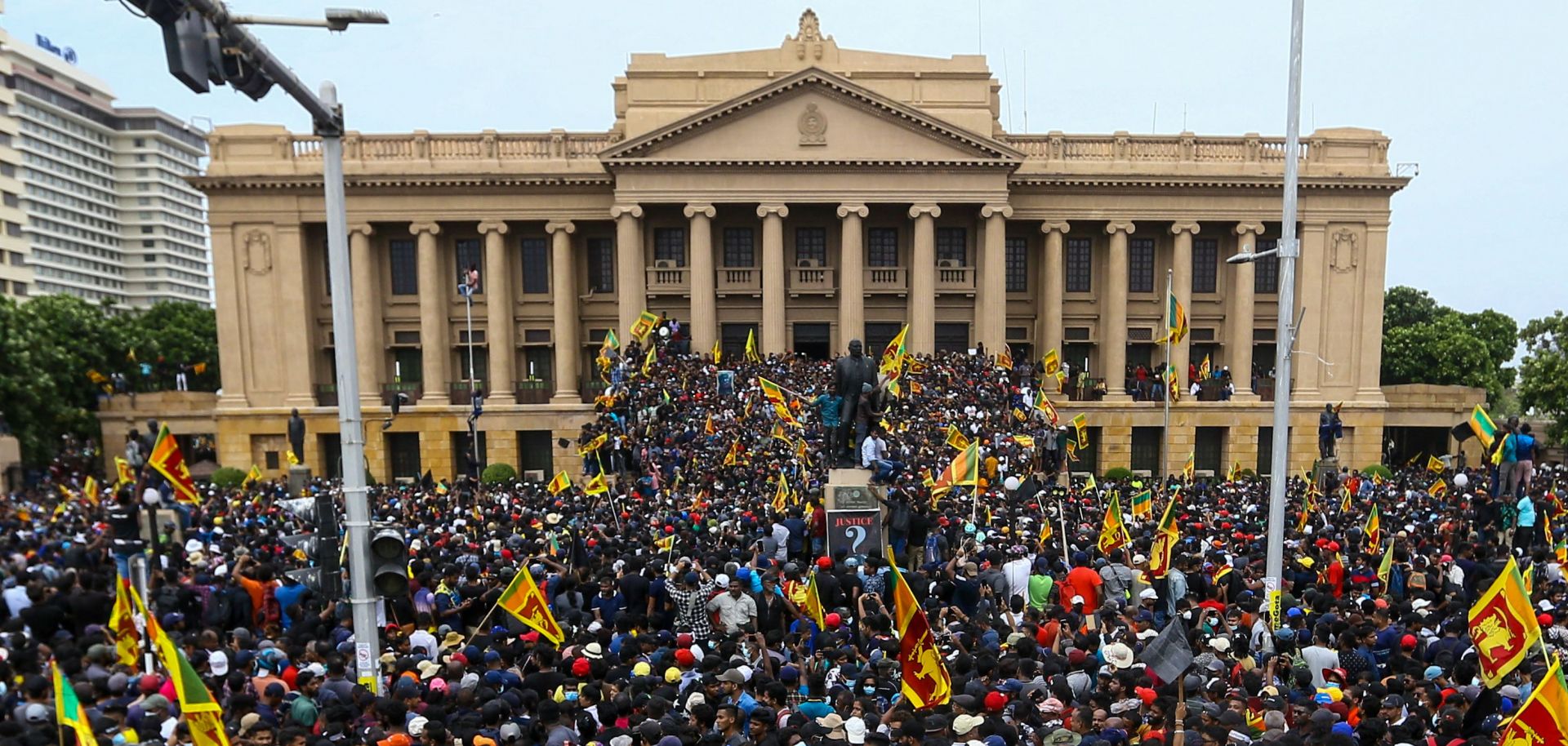The appointment of a national unity government could temporarily appease protests in Sri Lanka, but the country’s massive economic challenges and the likely imposition of austerity measures could spur new bouts of unrest in the coming months. Sri Lankan President Gotabaya Rajapaksa and Prime Minister Ranil Wickremesinghe have both signaled they will resign in the coming days, bowing to pressure from large protests in Colombo that recently damaged both leaders’ homes. In the coming weeks, most parties in the Sri Lankan parliament will likely come together to appoint a new national unity government. That government, however, will face the herculean task of imposing the reforms needed to mitigate the country’s deteriorating economic situation without driving more angry and cash-strapped Sri Lankans to take to the streets. ...

